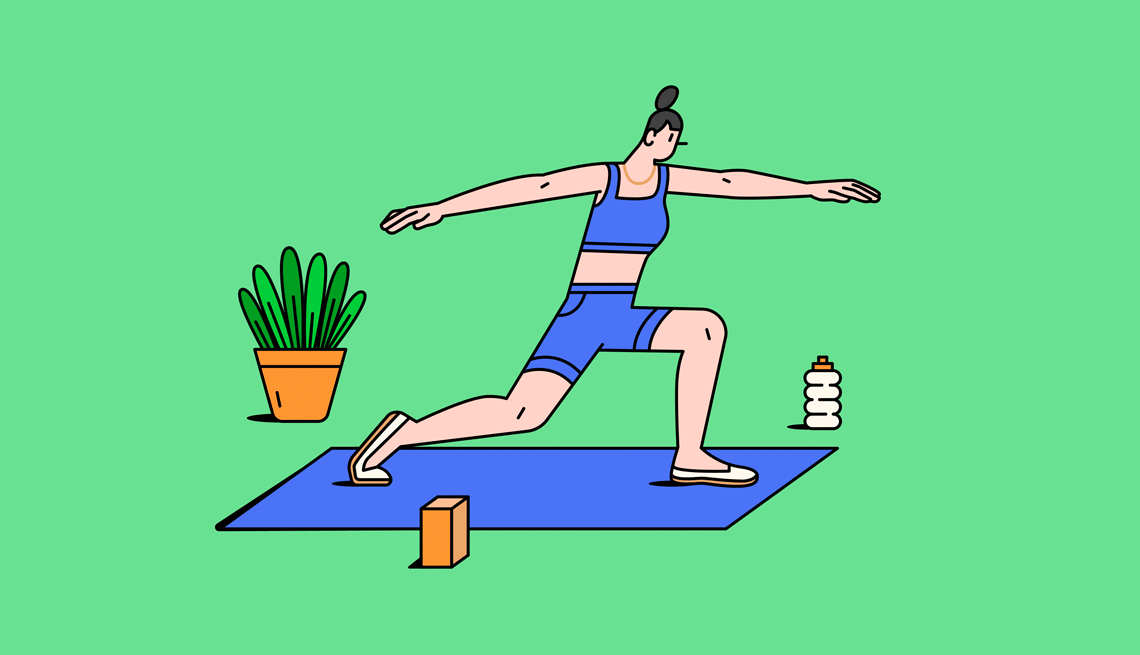
- Select a language for the TTS:
- UK English Female
- UK English Male
- US English Female
- US English Male
- Australian Female
- Australian Male
- Language selected: (auto detect) - EN
Play all audios:
9. STOKE YOUR SPIRITUAL SIDE Whether it’s due to the social benefits or the psychological effects of religious observance, attendance at places of worship promotes a longer life, according
to a study from the Harvard T.H. Chan School of Public Health. Published in _JAMA Internal Medicine_, the data were derived from the long-running Nurses’ Health Study of almost 75,000 women.
Those who attended services more than once a week had a 33 percent lower risk of dying during the 16-year follow-up period, compared with women who never went to a church, mosque or
synagogue. Those who attended services once a week had a 26 percent lower risk, and those who went less than once a week had a 13 percent lower risk. How religious attendance extends
lifespan isn’t completely understood, the authors noted. Other expressions of faith and spirituality may offer a similar longevity boost. Reduced levels of body flexibility are related to
higher mortality in middle-aged and older men and women, so focus on being more flexible. Jared Oriel 10. FOCUS ON FLEXIBILITY Flexibility isn’t just important for graceful movements but
also for survival, suggests a recent study in the _Scandinavian Journal of Medicine & Science in Sports_. Researchers measured the range of motion of multiple joints to assign a
flexibility score to more than 3,000 people ages 45 to 65, then followed them for an average of 13 years. Result: “Our study is the first able to show that reduced levels of body
flexibility are related to higher mortality in middle-aged and older men and women,” says study author Claudio Gil Araújo, M.D., dean of research and education at Brazil’s Clínica de
Medicina do Exercício. (To learn how to test your joint mobility, check out Arauju’s Flexitest video.) 11. CHOOSE LIFE-LENGTHENING PHYSICAL ACTIVITIES While almost any type of workout or
sport can help boost your longevity, certain activities may be especially good for it, according to research in _Medicine & Science in Sports & Exercise_. Researchers mined data on
26,727 Americans ages 18 to 84 to examine the effect of 15 different exercises on mortality rates over a 17-year period. After taking into account other factors that might also improve
health, researchers found that walking, aerobics, stretching, weight lifting and stair climbing were linked to lower risks of mortality. Stretching and volleyball stood out for reasons that
the researchers could only guess at. But stretching prolongs engagement with other sports, because it’s often performed before or after another activity. And volleyball provides social
contact, which increases lifespan all on its own. That may also explain how tennis has a life-extending effect, according to research in the _International Journal of Exercise Science_.
People who hit the courts regularly gained 9.7 additional years of life on average, compared to those who never picked up a racket. The study didn't include pickleball, America’s
fastest-growing sport, but like tennis, pickleball gets your heart beating, challenges your brain to keep score and is super social. If you’d like to give it a try, check out AARP’s Guide to
Pickleball, which includes information on free clinics across the country. 12. TAKE A GLASS-HALF-FULL APPROACH TO LIFE Looking on the bright side can help you achieve a long life, shows a
recent study of a racially diverse group of nearly 160,000 women ages 50 to 79 in the _Journal of the American Geriatrics Society_. Researchers found that the most optimistic women live
about 4.5 years longer (5.4 percent) than the least optimistic, based on answers to questions about their outlook and health data. The research team couldn’t say exactly how optimism extends
life, though some of the benefits can be explained by the healthy behaviors of optimistic people. People with a hopeful attitude also have a greater chance of living into their 90s, a study
of both men and women in the journal _PNAS_ (Proceedings of the National Academy of Sciences) found. 13. TRY AN AGE-REVERSAL PROGRAM Researchers recently tested an eight-week lifestyle
regimen designed to slow biological aging on a small group of women between ages 46 and 65. The group consumed a lot of leafy greens and cruciferous vegetables (cabbage, broccoli, Brussels
sprouts) along with other foods suspected of slowing aging (beets, pumpkin seeds, berries, eggs, liver, garlic). The women also worked out, took a probiotic, practiced breathing exercises
and tried to get at least seven hours of sleep each night. The lifestyle changes paid off: Published in the journal _Aging_, the data showed that the women shaved off about four years in
terms of biological age. In previous research, men between the ages of 50 and 72 years took the same measures, reducing their biological age by an average of 3 years as compared to a control
group that didn’t follow the program. 14. SEND GOOD VIBES TO OTHERS Practicing loving-kindness meditation has been linked to slower biological aging, according to a new study published in
the journal _Psychoneuroendocrinology_. When practicing this type of meditation, participants are taught to send unconditional love and goodwill to themselves and others. In a randomized
controlled trial involving 142 people, researchers measured the length of participants’ telomeres, the caps on the ends of chromosomes that keep them from fraying; the longer their
telomeres, the slower their aging. After 12 weeks, researchers found that telomere length among the people who practiced wishing others well was longer on average than that of people who
practiced other forms of meditation or didn’t meditate at all. Brush your teeth every day — researchers found that people with oral health problems like tooth loss and dry mouth had shorter
lives. Jared Oriel 15. BRUSH YOUR TEETH If you aren’t already brushing and flossing your teeth twice a day, it’s a good idea to start, suggests a report from British researchers in the
journal _Scientific Reports_ which highlights the importance of good dental hygiene for enjoying a long life. After taking into account the effects of chronic diseases and behavioral factors
like smoking and exercise on a person’s mortality risk, researchers found that people with oral health problems like tooth loss and dry mouth had shorter lives. Those with periodontal
disease (gum infections) were more likely to die from heart problems. That’s because bacteria from the mouth can travel through the bloodstream to other parts of the body, contributing to
inflammation and heart woes. 16. SEE OR TALK TO A FRIEND EVERY DAY So suggests research in the journal _Frontiers of Public Health_ that investigated how interacting with others affects
mortality. Scientists categorized nearly 10,000 people in the Chinese Longitudinal Healthy Longevity Survey as socializing occasionally, monthly, weekly or every day, then followed them. The
result: “A higher frequency of social activities was associated with an increased likelihood of extended survival,” says lead study author Sen He, M.D., of the West China of Hospital
Sichuan University in Chengdu, China. Although people who socialized at any frequency lived longer than the group that didn’t during the first five years of the study, only those who had
near-daily interactions saw a significant longevity advantage over the long term. 17. USE PLANT-BASED OILS INSTEAD OF BUTTER This one switch may lengthen your lifespan, say Harvard
researchers who followed more than 200,000 people for over 30 years. They found that substituting just 10 grams per day of butter (about two-thirds of a tablespoon) with an equivalent amount
of plant-based oils was linked to a 17 percent reduction in total mortality. Based on the data, published in _JAMA Internal Medicine_, the best oils to switch to are olive, soybean and
canola, says study author Yu Zhang. “These oils are rich in unsaturated fats and have been consistently linked with benefits such as improved cholesterol levels and reduced inflammation —
factors that are also very important for longevity,” he says. Zhang recommends making the switch gradually so that your palate adjusts to the new flavors.







